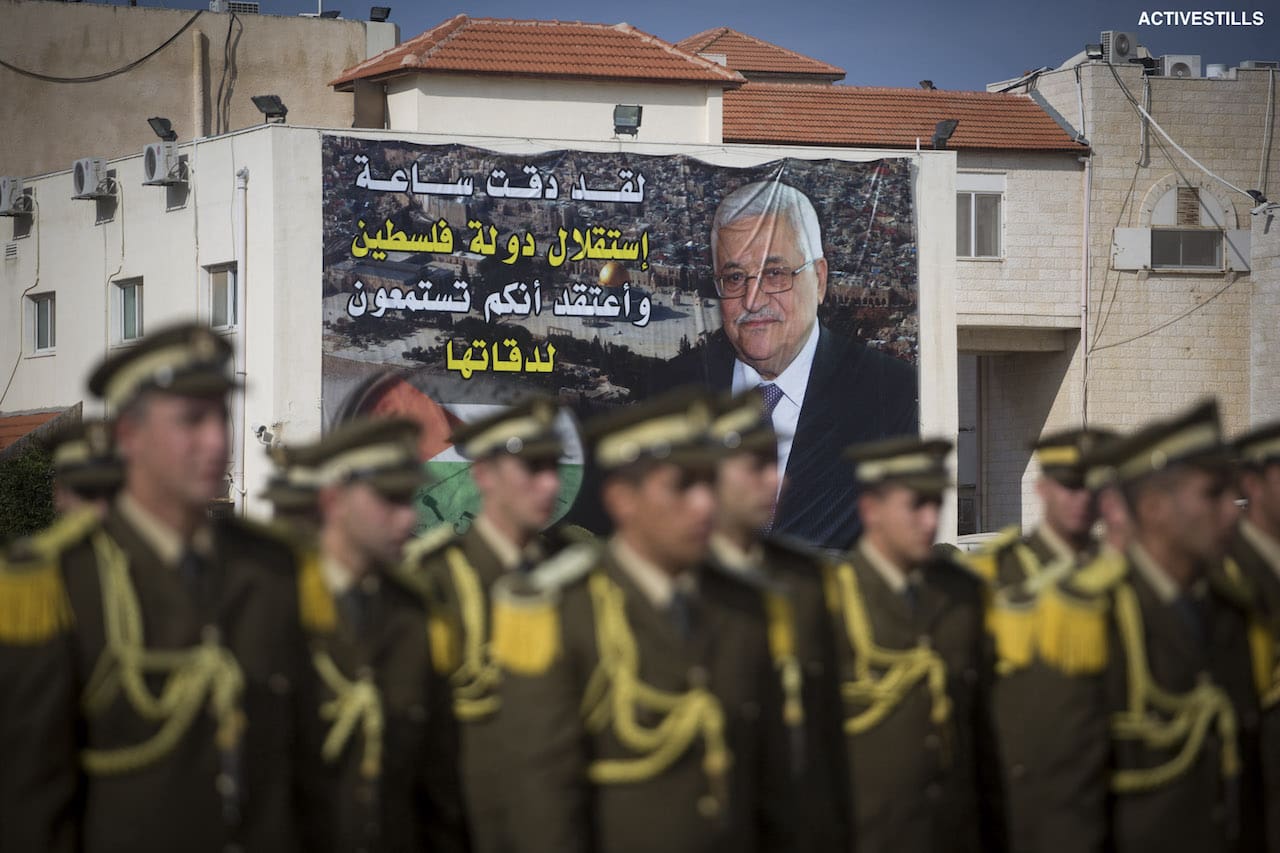
The most likely near-term outcome regarding Palestinian governance and security is the continuation of the status quo. This is because in the last three decades, Palestine has undergone a dramatic transformation in its sociopolitical landscape – one buttressed by a highly partisan security apparatus in both the West Bank and Gaza. Meanwhile, the Israeli regime’s military occupation has continued to expand. The Palestinian Authority security forces (PASF) are fundamentally linked to this arrangement and have institutionalized suppression of mobilization in Palestinian civil society through a coercive and financially incentivized economic structure.
The PASF is a partisan institution in which loyalty and kinship are critical to rise in the ranks. Patrimonialism has further come to characterize the organizational structure of not only governance within the PASF itself, but also in its broader interaction with Palestinian society, due to its access to financial aid and weapons.
The PASF and the Israeli regime engage in security coordination, even in the PASF’s lower ranks. Under former Palestinian President Yasser Arafat, only four to five senior-level PASF personnel could coordinate with Israeli occupation forces. Currently, hundreds of second- and third-tier PASF officers are engaged in such coordination, based on information obtained from members of the PASF. Former members of the Palestinian security sector, such as the former head of general intelligence, Tawfiq Tirawi, have been vocal about the “great danger” of security coordination with the Israeli regime becoming so widespread. In the process, Israel aids the creation of more Palestinian oligarchs, which generates a greater number of local stakeholders who also have an interest in preserving the status quo.
The international community is likewise invested in maintaining the status quo. The US in particular has never been an impartial broker between the Palestinians and Israeli regime, and Washington has always safeguarded Israel’s political and military objectives while proclaiming to be committed to a compromise between the two sides. Successive US administrations have done this by aiding the PASF through US governmental bodies, such as USAID and the State Department’s Bureau of International Narcotics and Law Enforcement. Stability for the international community is equated with Israel’s stability, and it will invariably prioritize Israel’s security and stability over more effective and democratic forms of governance in the West Bank and Gaza. That is, internal language among international donors has changed to simply maintaining the current sociopolitical dispensation via stability, which is to be achieved through security rather than limited Palestinian self-determination.
Broader regional developments have amplified the current state of affairs, notably the normalization deals between Israel and several Arab states. Current and former security heads in the PASF are now attempting to capitalize on these deals by making themselves instrumental intermediaries between the respective states and Israel. Mohammed Dahlan, one such individual, remains omnipresent in Gaza since Fatah exiled him from the West Bank in 2011. As former head of the PA preventive security branch in Gaza, he remains popular among his networks of Fatah dissidents there. His perceived influence in the UAE and his place of residence in Abu Dhabi have boosted support for him, especially after he coordinated UAE relief efforts for Gaza during the COVID-19 pandemic.
The Palestinian justice sector has fared no better. In both the West Bank and Gaza, the judicial systems are highly partisan. Abbas has ruled by decree for the last 15 years, and lawyers, judges, the bar association, and NGOs, among others, have criticized most amendments as unconstitutional. Abbas has monopolized control over the justice sector as he has with the security sector.
There remains little logistical or political investment or will from any relevant stakeholders among Palestinians, Israelis, or the international community to instigate real change in either the West Bank or Gaza. This is further evidenced by political developments in which the PA faced the worst political crisis since its establishment, which was amplified by Abbas’s April 2021 postponement of the first general Palestinian elections in 15 years. Palestinians were subsequently infuriated when, days after Abbas’s announcement to postpone the elections, the PA remained silent when Israeli forces attacked Palestinians in the Aqsa mosque complex. This was followed by a mass arrest campaign of demonstrators, activists, and some Palestinian Legislative Council (PLC) candidates following the announcement of a ceasefire between Hamas and Israel in May 2021. Palestinians saw this as the PA and Fatah trying to reclaim control at the popular level.
The escalating pattern of violence used to repress individuals and groups critical of the PA resulted in the killing of Nizar Banat in June 2021, a prominent activist and vocal critic of Abbas and the PA. Banat was also a PLC candidate. This has only worsened the PA’s legitimacy crisis, particularly at the popular level, where demonstrators called for the resignation of Abbas and the downfall of the regime. The PASF’s violent suppression of demonstrations over the death of Banat through the end of June and beginning of July 2021 further entrenched the status quo. As Palestinians expand popular resistance to Israeli military and settler violence outside of their governing institutions, most recently embodied in the Lions’ Den resistance group in the northern West Bank, the PA and its security forces will continue to capitulate to the Israeli regime in order to maintain the status quo.
Tahani Mustafa is the Palestine analyst at the International Crisis Group, where she works on issues including security, and socio-political and legal governance in the West bank. She holds a PhD in politics and international studies from the School of Oriental and African Studies (SOAS), University of London. She is based between the UK, Jordan, and Palestine.










